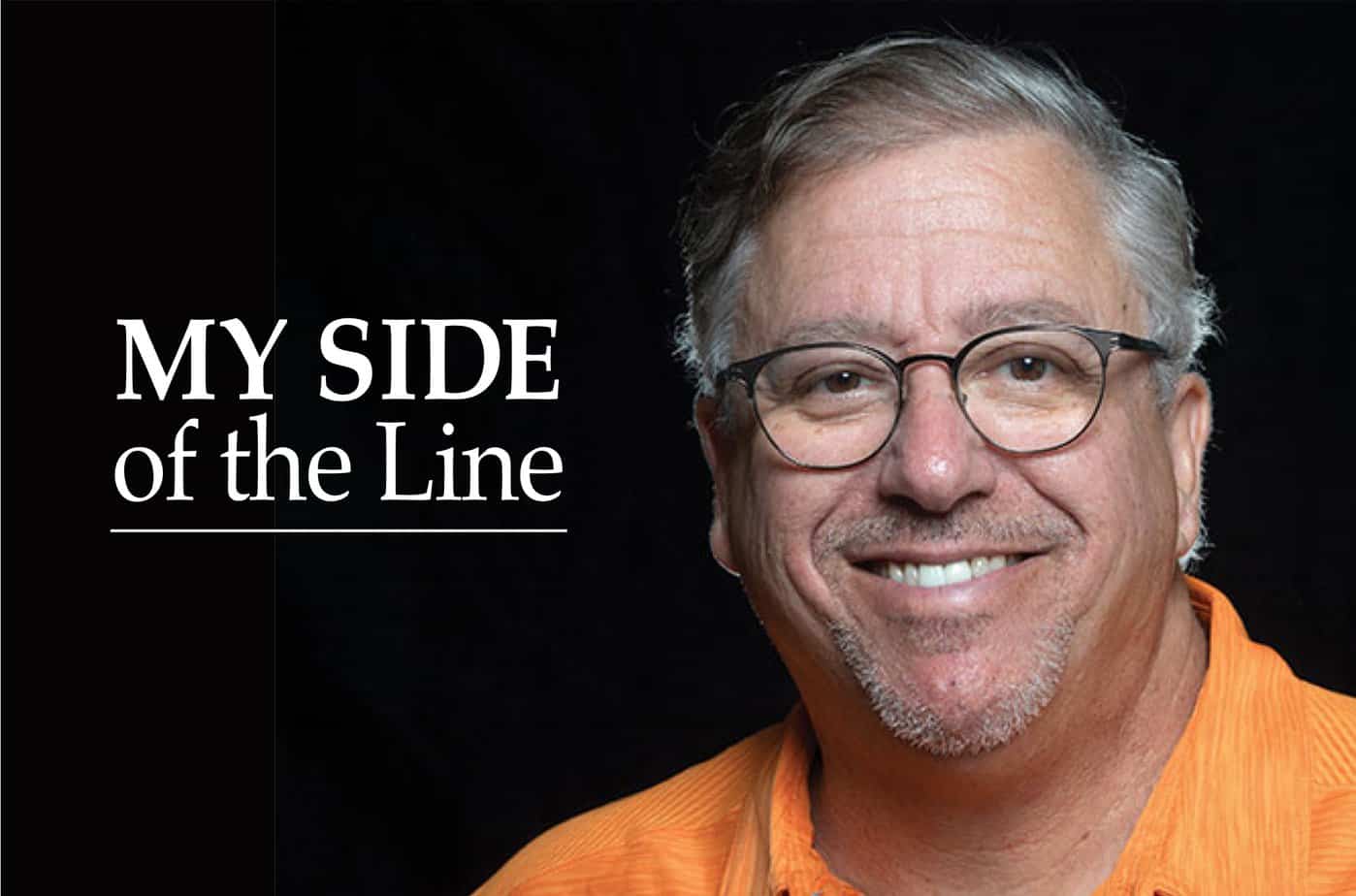Bitter politics, news industry woes, spell doom for endorsements

by Peter Weinberger
I’ll start by saying the COURIER no longer makes political endorsements. As a nonprofit, we cannot publish staff endorsements according to requirements set by the IRS. I’m sure some readers are clapping their hands, but we continue to believe endorsements are an important part of a news organization’s responsibility to inform the public. Plus, we get to know the candidates really well.
The sad part now is many news companies are dropping endorsements simply because it’s bad for business. And when revenues continue to drop every year, that can be a powerful influence.
The more important issue is our country’s polarizing politics. Although most of the feedback the COURIER receives is positive, there’s no question negative comments from the public are more intense, with more finger pointing. And politics is the number one reason why readers cancel a subscription. A perfect example is our coverage on Larkin Place. Unless we write a story that clearly denounces the plan, some will accuse us of biased reporting.
This dilemma has also impacted us locally since Alden Global Capital, the hedge fund that owns several daily newspapers in the Southern California area, including the Daily Bulletin, stated they would no longer endorse candidates for president, governor, or the U.S. Senate. No reason was even given.
Remember when a newspaper endorsement or editorial would be used in campaign ad as a way to promote a cause? We just do not see that any longer, even though the Los Angeles Times continues to make endorsements for most statewide causes and candidates.
Des Moines Register Executive Editor Carole Hunter tried to justify scaling back on endorsements. “I do think you can make the argument in many cases that they’ve outlived their usefulness because of the increased polarization and the skepticism of media in general,” Hunter said. “I don’t think that’s a healthy trend. But I think that’s reality.”
I do not agree with her assessment but can clearly relate to why she feels that way. One key question to ask is whether endorsements still have much influence. It may not seem that way on the surface because parties on both sides are so rigid in their beliefs. But with any election, there’s always a quiet group of voters who do not participate in political activities, may not have signs in their yard, or lend their name to a campaign ad, but vote each and every time. This will make some elections hard to predict.
Just look at how Donald Trump won the presidency in 2016. The large percentage of endorsements were for Hillary Clinton, yet Trump surprised almost everyone by winning. Sometimes the quiet voters are numerous, but it’s just hard to hear them. Although it may look like endorsements have less influence today, accurate figures on exactly how much do not exist, which is why they are still an important part of any election.
According to the American Presidency Project at the University of Santa Barbara, of the country’s largest newspapers, 92 endorsed a political candidate in 2008. By 2020, that figure had dropped to 54. Obviously, with so many newspapers going out of business (more than 2,000 since 2008) that figure would be smaller.
Given the unpopularity of the press and the fact that more and more people have a hard time distinguishing news from opinion, objective news versus fake, there becomes a push not to rock the boat. Gannett was not shy to advise it’s 220 newspapers to cut back on endorsements because it was the number one reason for subscription cancellations. That being said, there is a way to write a respectful endorsement. But will the public see it that way?
One thing the COURIER would always do was to interview candidates before writing any endorsement. We would also publish an objective interview story (like we did this year) in the weeks leading up to Election Day. Many news companies will write an endorsement without conducting an interview. Except for several key national offices like president, I think that’s a mistake. Especially on the local level. Talking to a candidate face to face is critical in publishing any objective endorsement.
Like so many other issues in the changing news industry, losing endorsements is just a sign of the times, with no single reason why they are disappearing. Hopefully over time the public can reverse course and focus more on the issues, and less on the person. Right now, it just seems like we have a long way to go.
In Claremont, residents are fortunate to have such an active community, which impacts the quality of candidate who wants to serve. Now let’s get out and vote!








0 Comments